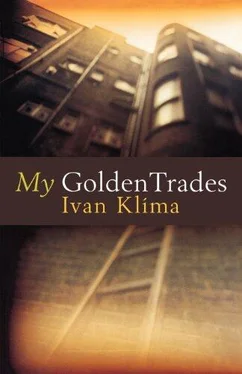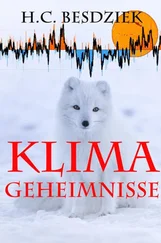Ivan Klima - My Golden Trades
Здесь есть возможность читать онлайн «Ivan Klima - My Golden Trades» весь текст электронной книги совершенно бесплатно (целиком полную версию без сокращений). В некоторых случаях можно слушать аудио, скачать через торрент в формате fb2 и присутствует краткое содержание. Год выпуска: 1998, Издательство: Granta UK, Жанр: Современная проза, на английском языке. Описание произведения, (предисловие) а так же отзывы посетителей доступны на портале библиотеки ЛибКат.
- Название:My Golden Trades
- Автор:
- Издательство:Granta UK
- Жанр:
- Год:1998
- ISBN:нет данных
- Рейтинг книги:4 / 5. Голосов: 1
-
Избранное:Добавить в избранное
- Отзывы:
-
Ваша оценка:
- 80
- 1
- 2
- 3
- 4
- 5
My Golden Trades: краткое содержание, описание и аннотация
Предлагаем к чтению аннотацию, описание, краткое содержание или предисловие (зависит от того, что написал сам автор книги «My Golden Trades»). Если вы не нашли необходимую информацию о книге — напишите в комментариях, мы постараемся отыскать её.
My Golden Trades — читать онлайн бесплатно полную книгу (весь текст) целиком
Ниже представлен текст книги, разбитый по страницам. Система сохранения места последней прочитанной страницы, позволяет с удобством читать онлайн бесплатно книгу «My Golden Trades», без необходимости каждый раз заново искать на чём Вы остановились. Поставьте закладку, и сможете в любой момент перейти на страницу, на которой закончили чтение.
Интервал:
Закладка:
Beyond the shacks, meadows rose gently to woodland. There, the railway passed through a shallow valley. I walked up to the first trees and looked for a view I would enjoy drawing. I draw mostly landscapes now. Even my wife likes them. She claims that they express the more pleasant, comforting, less contradictory part of my personality.
The sun poured down on the land, a nearby hill rose steeply against the sky, a pond sparkled at the bottom of it. Several willows dipped their branches in its water, and a narrow, sandy pathway ran from the water towards me; it was lined with low shrubs, among which, closer to me, rose a mature mountain ash, its crown laden with reddish-orange fruit. I found a warm stone, sat down and began to
sketch the outline of the distant hill.
'And the only thing that really grabbed me,' my friend Karel had said yesterday, reminiscing about his visit to the gallery in Montenegro, 'apart from Hegedušič, who's dead now anyway, was old Generalič. You look at his cat sitting in the window, with a couple of apples and onions in front of it, and you say to yourself: This guy is incredibly inventive. He can't help it, he's a true primitive. He doesn't think about things, he doesn't make anything up, he just paints. There's one where he's got this plucked cockerel hanging on a hook. Can you think of a more eloquent image of the modern world? A greater disgrace to life than a bird stripped of its feathers? It's the image of man who has nothing left: no God, no hope. But Generalič doesn't know about any of this; he just thinks he's painted a plucked rooster in his village. Tell me, does it make any sense to go pn making an effort? Wouldn't it be better to admit honestly that we haven't got what it takes any more? And now tell me,' he said, stretching out his bony hand towards me, 'does anyone have what it takes any more?'
Ecclesiastes has an answer to that: 'He that observeth the wind shall not sow; and he that regardeth the clouds shall not reap.'
I expect that the landscape in front of me had been painted by several painters already. And the number of times photographers had immortalized it would be hard to guess at. I could, to distinguish myself somewhat, treat it as a cubist would, or a surrealist — paint a dead dove in the foreground instead of the mountain ash, perhaps. I could pretend that I saw the landscape in completely different colours from those a camera would see, but why? If I were a painter, I would probably feel the same kind of despair
that my friend Karel feels when he sees that he has barely been able to go beyond the limits others have reached before him. Fortunately, thanks to the spoiled sunflowers, I had been able to rid myself for ever of the responsibility of thinking up something new, at least in paint. I could, in all good conscience, delight in the fact that my mountain ash would at least faintly resemble the mountain ash I was looking at now, and that one day, when I looked at my picture again, the pleasure of this moment would perhaps come to mind.
A train gave a long whistle, and then I could hear the rattling of the carriages as though it were right behind me.
Sometimes I think that the furious hunt for novelty is diseased and self-destructive. We have declared progress to be our idol. Progress we understand to be something new, something that has never been here before and thus must be better than everything we have. It doesn't matter whether we move in the sphere of technology, science, the organization of society or the arts. The discovery of something new was always reserved for the genius; today all you need is a school-leaving certificate or at least a month-long training course and a good supply of arrogance. Perhaps we'd be better off if we worried less about whether we'd seen and expressed ourselves in a new way, and worried more about whether what we have seen and expressed is of use to anyone at all.
Something in the woods behind me snapped. I turned around. A girl in a denim skirt and blouse was approaching — at first sight a twin of the two girls I had seen today: the one in the train, and the one by the pump. She saw me. For a moment she stared at me, and it seemed that she too had red eyes, although most likely my own
vision was clouded by a red mist. She stopped abruptly, turned and hurried away down to the valley where the railway track was.
The girl would also have looked good in my picture; I could have painted her leaning against the trunk of the mountain ash, staring at me with her reddened eyes. But what kind of expression did she have, exactly? Lately, girls' faces have begun to seem less expressive, and more and more often I meet young girls who have no expression at all.
Recently in a doctor's waiting-room I picked up a magazine from the table and read that 'extensive cablization is an inseparable aspect of all electrification; the successful development of scientific and technological evolution requires tireless and qualified knowledge. . ' Language deprived of meaning — I dare not say beauty— and amplified by countless loudspeakers is pouring over the countryside, seeping into our homes, our spirits, our lungs, until we are stifled. I'm not sure that we could find even one brave girl who would bury us with dignity once our suffering is at an end.
How can we achieve real solidarity when we cannot even speak to each other?
Not long ago Karel brought me a poem by a friend of his who had hung himself a short while before. The poem went like this:
1. . this day
2. . this morning 3. . this forenoon
4. . this noon
5. . this afternoon
6. . this evening
7. . this dusk
8. . this night
9. . yes, just then
10. . it happened
It was his last poem. He believed that precisely by using such spare language he could stand up to the poisoned waves; he was constructing a raft on which to sail closer to others. Then he realized that he could not make himself heard even from this craft, and he gave up. They threw him into a mass grave, and that was the end of it.
A train whistled in the distance, but I paid no attention to it.
A handful of people despair at the barrier they see surrounding them. They believe they must get beyond it, or their lives on earth will have been in vain. But what of the rest? What of those who have never heard a kind word or a whisper of hope? The loudspeakers roar and the picture tubes cast their pallid glow.
The train's horn sounded close by, unexpectedly, insistently, and at the same time the brakes squealed; then I heard, or thought I heard, a brief, piercing scream. Then there was silence. I couldn't see it, but I knew that the train had come to a halt.
I stood up, as though that would better enable me to determine what had happened. The silence persisted; somewhere nearby a woodpecker started up. The scream had evidently sprung from my imagination, for it didn't seem possible that a human voice could reach me all the way from the valley, especially not over the sound of the train's horn.
I sat down again, gathered my pencils together, put the paper into a folder and set off towards the track.
The train was still standing there. It was a freight train.
I stood on a ledge of rock that overlooked the rails. From that height I could see three men leaning over a woman's body; the body did not have a head. The men were carefully avoiding a pool of blood which had soaked the girl's blue blouse and skirt. If I'd walked around the spur of rock, I could have gone down to the track, but it wouldn't have made any sense. There was no help I could offer.
One of the men climbed into the engine and came back with a piece of light-coloured rag. He shook it out, then he laid it over the body. It was a small rag, and it only covered the upper part of the corpse. The men talked for a while; the sound of their voices reached me, but I could not understand individual words. Then two of the men climbed up the ladder into the engine. The third man stood motionless by the body, as though unable to move, then he took a few uncertain steps to one side. The two men in the engine were shouting at him to get back in the train; then they climbed down, took him under the arms and pushed him with their combined strength up the ladder. A moment later, the train began to move.
Читать дальшеИнтервал:
Закладка:
Похожие книги на «My Golden Trades»
Представляем Вашему вниманию похожие книги на «My Golden Trades» списком для выбора. Мы отобрали схожую по названию и смыслу литературу в надежде предоставить читателям больше вариантов отыскать новые, интересные, ещё непрочитанные произведения.
Обсуждение, отзывы о книге «My Golden Trades» и просто собственные мнения читателей. Оставьте ваши комментарии, напишите, что Вы думаете о произведении, его смысле или главных героях. Укажите что конкретно понравилось, а что нет, и почему Вы так считаете.












